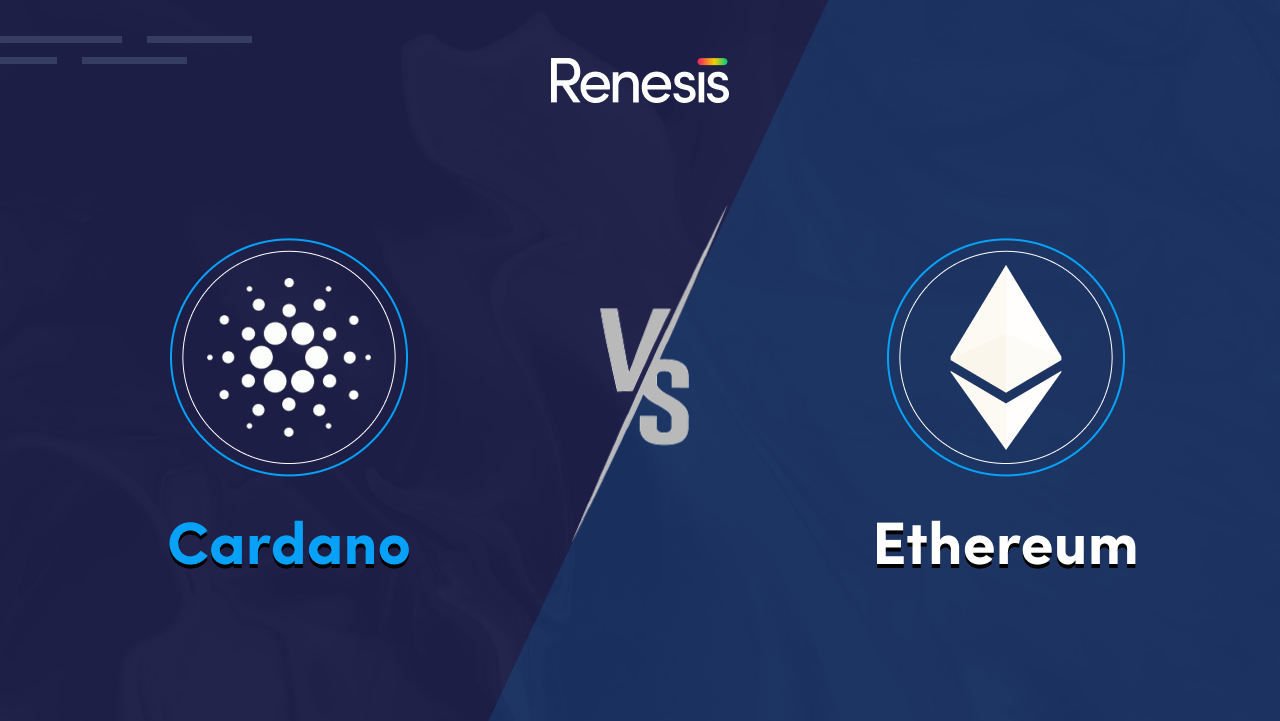Cardano vs Ethereum: Decoding the Differences
When it comes to the world of cryptocurrencies, few names are as well-known and widely used as Ethereum. It is one of the most successful cryptocurrencies, with a market cap of over $200 billion. However, in recent years, Cardano has emerged as a competitor to Ethereum, and many investors and traders are now looking to compare the two. In this article, we will explore the differences between Cardano and Ethereum to help you understand which one may be the better choice for your investment.
Recently, cryptocurrencies have gained popularity, with more and more investors seeking to become involved in such a new and exciting asset class. While Bitcoin remains the most well-known cryptocurrency, other digital currencies like Ethereum and Cardano are also gaining a lot of attention.
Cardano vs Ethereum: A Brief Overview
Cardano and Ethereum are two of the most well-known cryptocurrencies in the world. Ethereum was created in 2015 by Vitalik Buterin, while Cardano was launched in 2017 by Charles Hoskinson, one of the co-founders of Ethereum.
A decentralized platform like Ethereum allows developers to build decentralized applications (dApps). Also, it can be used to create smart contracts, which are self-executing contracts for automating a variety of processes. Cardano, on the other hand, is a third-generation blockchain platform that aims to provide a more efficient and secure way of processing transactions.
The Technology
One of the key differences between Cardano and Ethereum is the technology they use. In order to add new blocks to the blockchain, miners must solve complex mathematical equations using the proof-of-work algorithm (PoW). In contrast, the Cardano consensus algorithm uses proof-of-stake (PoS), which allows users to stake their coins to help validate transactions.
Compared to Ethereum, Cardano is mainly based on the PoS system. Compared to PoW, PoS uses much less energy because it does not require miners to use massive amounts of computing power to validate transactions. As a result, Cardano is capable of processing transactions much more quickly and cheaply than Ethereum.
The Transactions
Another major difference between Cardano and Ethereum is the way they handle transactions. Ethereum can process around 15 transactions per second, while Cardano can process up to 257 transactions per second. This makes Cardano much faster and more efficient than Ethereum.
In addition to speed, Cardano also offers more security and privacy than Ethereum. With Cardano, the ledger consists of two layers: the Cardano Settlement Layer (CSL) and the Cardano Computation Layer (CCL). Smart contracts are run using the CCL, whereas transactions are handled by the CSL.
This makes Cardano much more secure than Ethereum, as any potential security breaches will only affect the CCL, not the CSL.
The Community
Another key factor to consider when comparing Cardano and Ethereum is the community behind each platform. Both platforms have active and dedicated communities, but Cardano has a more academic and research-oriented approach, while Ethereum is more developer-oriented.
Cardano has a strong focus on scientific research and has partnered with a number of academic institutions to develop its technology. Ethereum, on the other hand, has a more developer-focused approach, with a large number of developers working on the platform and building dApps.
While Ethereum is a well-established and widely used cryptocurrency, Cardano offers several advantages that make it an attractive option for investors and traders. With its use of the PoS consensus algorithm, Cardano is much more energy-efficient than Ethereum, which allows it to process transactions more quickly and cheaply.
Additionally, Cardano’s layered architecture also provides better security and privacy than Ethereum, making it a more secure platform overall. Finally, Cardano’s academic and research-oriented approach may appeal to those who are interested in the long-term potential of the platform.
That being said, Ethereum remains a dominant force in the world of cryptocurrencies and has a strong community of developers and users. The platform’s ability to support a wide range of dApps and smart contracts is one of its biggest strengths. Many investors and traders continue to see it as a sound investment opportunity.
FAQs
Q1. Which cryptocurrency is better, Cardano or Ethereum?
A1. Both Cardano and Ethereum have their own strengths and weaknesses, and the choice of which one to invest in ultimately depends on your own investment goals and risk tolerance.
Q2. What is the difference between proof-of-stake and proof-of-work?
A2. Proof-of-stake and proof-of-work are two different consensus algorithms used in blockchain technology. Proof-of-stake allows users to validate transactions by staking their coins, while proof-of-work requires miners to solve complex mathematical equations.
Q3. Can Cardano be used to create dApps and smart contracts?
A3. Yes, Cardano is a blockchain platform that can be used to create dApps and smart contracts, much like Ethereum.
Q4. Which platform has a larger community, Cardano or Ethereum?
A4. Ethereum has a larger community of developers and users than Cardano, but Cardano’s community is growing quickly, particularly in the academic and research sectors.
Q5. Is Cardano a good investment?
A5. As with any investment, there is no guaranteed return, and the value of Cardano (or any cryptocurrency) can be volatile. However, many investors and traders see Cardano as a promising platform with long-term potential.
In the battle of Cardano vs Ethereum, both platforms have their own unique advantages and disadvantages. While Ethereum remains a dominant force in the world of cryptocurrencies and has a large and active community of developers and users, Cardano’s use of the PoS consensus algorithm, layered architecture, and academic focus make it an attractive option for investors and traders who are looking for a more energy-efficient, secure, and research-oriented platform.
Ultimately, the choice of which platform to invest in depends on your own investment goals, risk tolerance, and preference for technology. However, by understanding the differences between Cardano and Ethereum, you can make a more informed decision about which platform may be the better choice for you.










